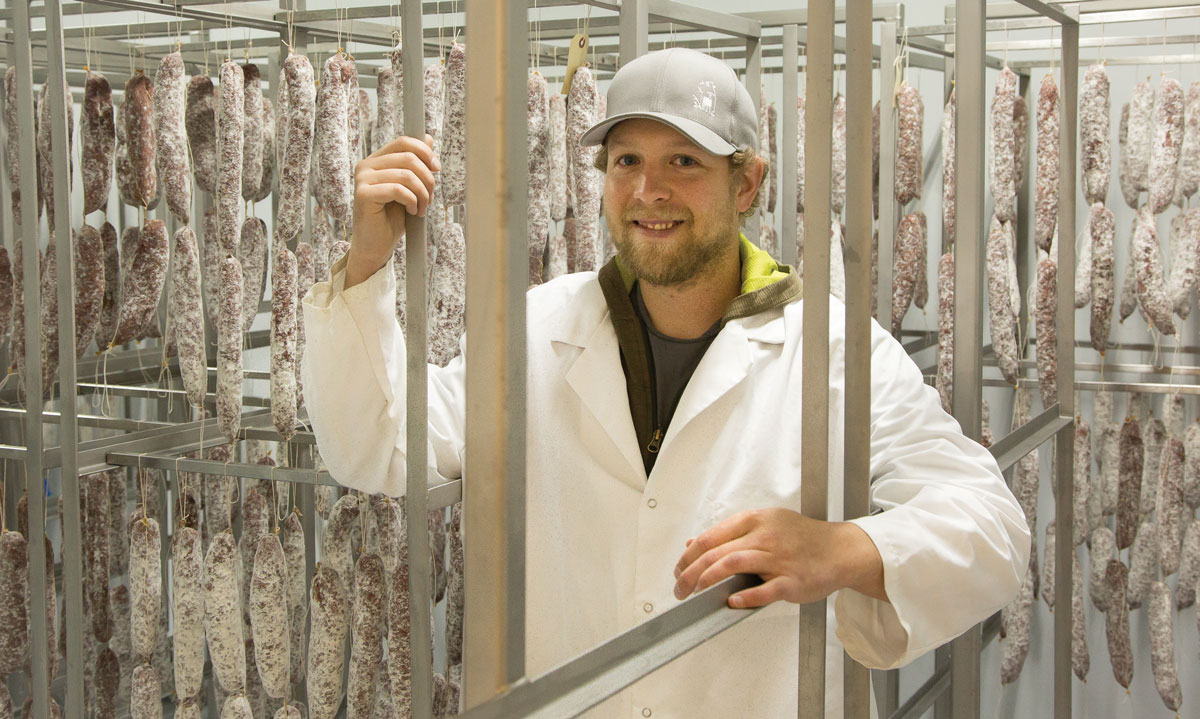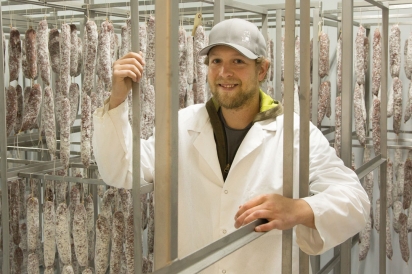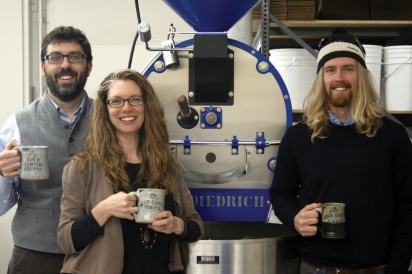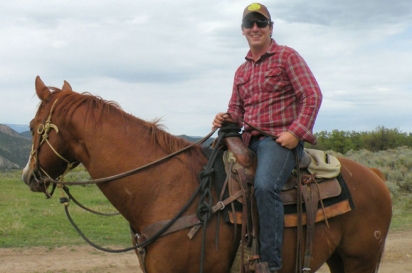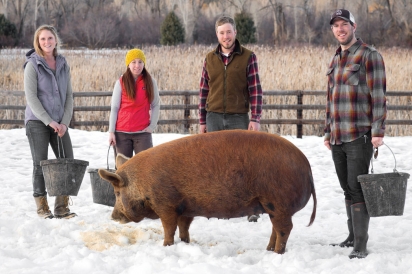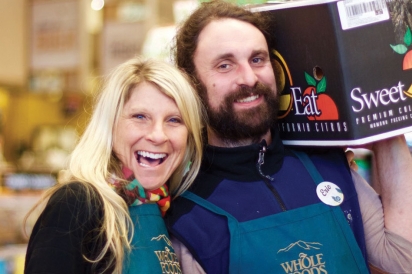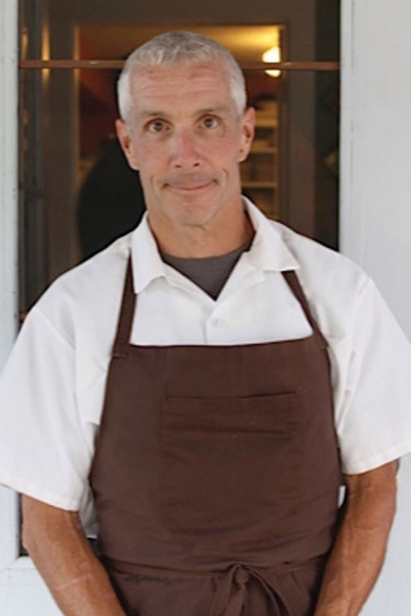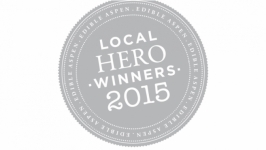Local Heroes 2016
The dedicated chefs, farmers, artisans and activists behind our thriving food scene
Every year, our readers vote online to nominate six noteworthy local food change-makers, and we profile the winners in these pages. These inspiring stories convey the remarkable energy, ambition and vision of those in the vanguard of our local food movement. Congratulations to this year’s crop of Edible Aspen Local Heroes!
FOOD ARTISAN
Avalanche Cheese Company
Salumiere Patrick Kennedy
“This year was the true test—and we won another Good Food Award for the finocchiona,” says salumiere Patrick Kennedy of Avalanche Cheese Company. (The company also nabbed a 2016 Good Food Award for its goat cheese; both are repeat winners from 2015.) Two years ago, Kennedy traded cheesemaking at the company to help owner Wendy Mitchell launch a custom-built, 800-square-foot charcuterie production facility adjacent to the Basalt creamery. Now he produces some 400 pounds of aged and cured pork and goat products weekly, including two Italian sausages and Spanish-style chorizo steeped in Old World tradition. Kennedy is also aging whole pork muscle to make coppa, lomo, pancetta—even goat prosciutto (violino)— to sell at Mitchell’s Meat & Cheese Restaurant and Farm Shop in Aspen. Using goat—still underappreciated in the US—sets Avalanche apart, he says.
Avalanche’s distribution has grown from farmers’ markets in the Roaring Fork Valley and grocers in Denver and Boulder to cheese shops nationwide and Michigan-based Zingerman’s Deli mail-order service. “It’s awesome to see product move because when you’re making it, you don’t know where it goes,” says Kennedy, nicknamed “Salumiere Solitario,” for toiling long hours mostly alone.
As each batch of charcuterie requires six weeks minimum to complete, Kennedy’s careful eye and patient mind are key. “It takes a long time to hone your craft. We’re not microbiologists, but we are playing around with bacteria,” says Kennedy, who was born in Germany. “We try to be intuitive. … Apparently sausage-making is in my blood.” AvalancheCheese.com
BEVERAGE ARTISAN
Rock Canyon Coffee
Craig Fulmer, Heidi Johnson and John Farrell
2015 was Rock Canyon Coffee’s buzziest yet. In May, founders Craig Fulmer and Heidi Johnson moved the 4-year-old operation from their garage to a 750-square-foot commercial space in Basalt. In June, Rock Canyon Coffee hit the shelves of Whole Foods Market, where the couple holds monthly tastings similar to their educational farmers’ market gigs. July welcomed third partner John Farrell as strategic planner. And in October, head roaster Fulmer nearly doubled production with a new, 25-pound batch roaster.
“Our coffee looks different: dark chocolaty brown, not black and oily—that sparks conversation with people,” Johnson says. “Our philosophy is that we don’t burn the beans because that’s disrespectful to the farmer working hard in another country on the other end of the process. We want to showcase that.”
Rock Canyon’s adventurous spirit was born when Fulmer and Johnson fled coastal corporate jobs to become coffee artisans in Colorado. Their West Coast importer visits coffee farmers and cooperatives in Africa, Indonesia, South America and elsewhere to ensure sustainable organic or “passive organic” (following guidelines without certification) practices. Six varieties of Rock Canyon Coffee serve hotels, restaurants and convenience stores from Crawford to Parachute to Aspen; is available in 20 states; and through the online store that ships throughout the US. Coming soon: single-origin varietals, or beans from one place, boasting pure flavors and notes of terroir.
“Coffee is a comfort food,” Johnson explains. “It’s a ritual. It’s an art to treat coffee beans well so that when they end up in the cup, it’s a happy experience.”
Indeed, Rock Canyon—“Great Coffee for Great People”— warms us up. RockCanyonCoffee.com
NONPROFIT ORGANIZATION
Thompson Divide Coalition
Born at the kitchen tables of ranchers, farmers, hunters, small business owners, and concerned residents of Colorado’s Western Slope, the Thompson Divide Coalition (TDC) has made major strides in protecting 221,500 backcountry acres from gas and oil developers.
In 2015, the coalition achieved a double-whammy win: The US Forest Service stepped in to shield the Thompson Divide for at least 20 years from future oil and gas leasing, while the Bureau of Land Management agreed to review some 25 improperly issued oil and gas contracts in the area. The goal: Cancel shaky deals and ink legislation to safeguard the land permanently. (The group expects a final decision as early as September.)
Says Zane Kessler, TDC executive director of nearly four years: “This is a coalition of strange bedfellows: ranchers and mountain bikers, environmentalists and Republican county commissioners— folks who would not see eye-to-eye on any other issue, coming together to protect the landscape for all it offers. Water, ranching, recreation, tourism—they’re all interconnected.”
The Thompson Divide plays a vital role in our local foodshed, providing fertile grazing for cattle herds in the summer and clean water to farmers in numerous drainages, including the Crystal River and Four Mile Creek.
Kessler, once an avid dirt biker, envisions triumph. “There’s very little that can stand in the way,” he says, “of a community that is unified and willing to stand up for what they believe is right.” SaveThompsonDivide.org
FARM / FARMER
ACES at Rock Bottom Ranch
Jason Smith
Jason Smith can pinpoint the moment—a Friday afternoon last August—that made every iota of work as director of ACES at Rock Bottom Ranch since 2013 worth it. “We harvested more food that one day than the ranch produced in any year from 1999 to 2012,” he says. “That’s stuck with me.”
One of the region’s most important examples of sustainable agriculture, ACES at Rock Bottom Ranch is fulfilling its goal of providing access to locally grown food and teaching consumers how to prepare it. 2015 production numbers speak volumes: 8,000 pounds of pork; 800 pounds of chicken; 4,000-dozen chicken eggs (more than double that of 2014); 4,500 pounds of lamb in partnership with Crystal River Meats; and 7,600-plus pounds of vegetables. That’s roughly 27,945 pounds of food—produced by just two agricultural managers.
Additionally, the ranch made more than 12,000 educational contacts through farm dinners, field tours, school programs in spring and fall, kids’ summer classes and cooking workshops in a new demonstration kitchen. Smith also measures success by other, no less important accomplishments: doubling staff annually, rigging an irrigation system, completing 1½ miles of the Great Outdoors Colorado trail system on the property, and working to launch a farmer-training academy.
“To me, nothing says restoring the land more than taking care of a farm and how it interacts with wildlife,” Smith says. (In fact, RBR was the first Certified Wildlife Friendly farm in Colorado.) “We have a good team, and we wouldn’t be here without the community supporting us.” AspenNature.org
FOOD SHOP
Whole Foods Market / Roaring Fork
On August 15, 2012, shoppers from New Castle to Aspen rejoiced when Whole Foods Market Roaring Fork opened its doors in Willits Town Center. The 25,000-square-foot store feels as if it has been there longer, though. It was a long time coming.
Friendly service, in-store demos and regular special events such as cheese tastings and oyster education classes draw an enthusiastic following. As do the hot foods bar, soup station, salad bar, sandwich artist, pizzaiolo, espresso bar, wide case of teas, juices and artesian water, and kaleidoscopic wellness aisle. The market’s 150 employees are eager to tell the stories of products—just ask. They’re proud too, as everything is evaluated to be free of artificial preservatives, colors, flavors, sweeteners and hydrogenated fats per Whole Foods Market standard of selling only high-quality, natural and organic foods. (At least 22 hyper-local purveyors—Crystal River Meats, Mrs. Barr’s, In the Soup, Eagle Smoked Salmon, Rock Canyon Coffee, Avalanche Cheese and others—will attest to the company’s rigorous vetting process.)
Seeking feedback and striving for authenticity, the Basalt market may resume open-forum “Coffee Talks” with staff and customers to discuss improvements; charitable donations to 300 area nonprofit organizations will continue.
Store Team Leader Bree Lindsey considers Whole Foods Market Roaring Fork a clear fit. “We live in a community that cares deeply about our environment,” she says, “protecting the charm of our valley, sharing love for the outdoors, supporting local purveyors and living a life of general well-being.” Yes, that’s us! WholeFoodsMarket.com/Stores/RoaringFork
CHEF / RESTAURANT
Mark Fischer / Town
In a world where every restaurant claims to be “farm-to-table,” it’s satisfying for a chef to call the marketing label what it really is. Honesty, awareness, and mission to remain relevant have earned wild success for Mark Fischer, chef-proprietor of Town on Main Street in Carbondale—as well as Phat Thai across the street; The Pullman in Glenwood Springs; and Harman’s Eat & Drink in Cherry Creek. An early pioneer of the eat-local movement when he opened SIX89 in 1998, Fischer says that sourcing produce was still hit-or-miss near the end of the restaurant’s 14-year run in 2012.
“It was, like, ‘Let’s cross our fingers and hope the farmer will give us something we can use,’” he recalls. “Now we’ve seen growth in the number of farmers we can call and help plant things we plan to sell. That gives us direction of how we frame our menu in ways people can relate. It’s an education for all of us.”
Last summer, Town had one farmer supplying heirloom tomatoes, another delivering squash blossoms, and “a designated forager—instead of hoping someone would come to the back door with mushrooms,” Fischer says.
A veterinarian raising rabbits supplies the protein year round, and a new partnership with ACES at Rock Bottom Ranch has the restaurateur plotting his return to cooking; he’d rather handle custom-grown ingredients than the minutiae of running four businesses.
Fischer credits open-minded guests as much as his 40-person staff for sustaining the restaurant. “This [Local Hero] award tells me we’re doing something right,” he says. “Still, we can get better.” TownCarbondale.com


